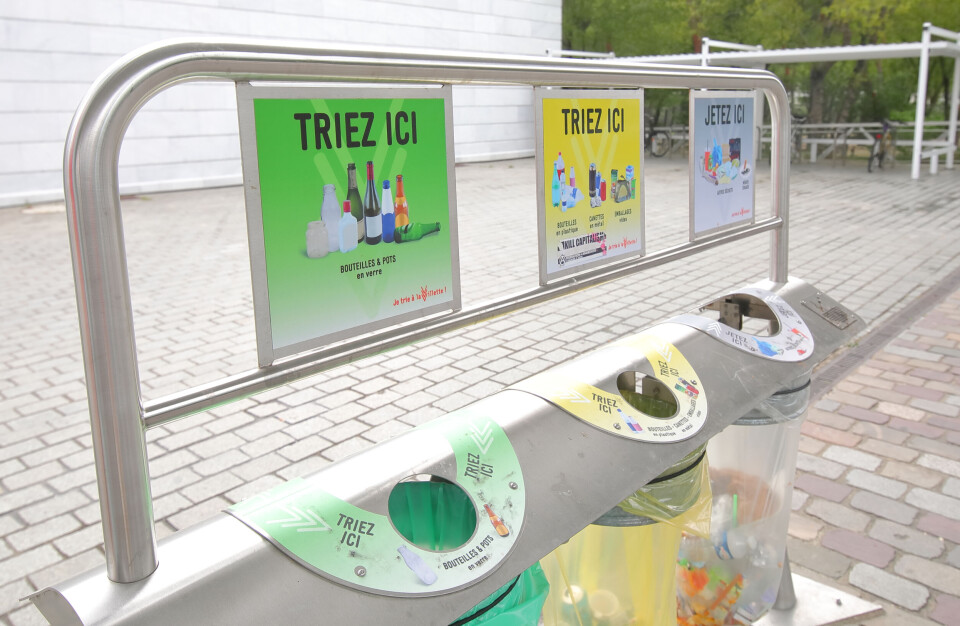-
How to save money on fashion and clothes in France
Growing number of second-hand shops are selling clothes by weight
-
How to deal with asbestos in France
As the material ages, it degrades - becoming more likely to release harmful fibres
-
How can I protect my second home in France from mice while I am away?
Pests can enter homes at any period
How to recycle in France: Seven common questions answered
Should you clean the yoghurt pot before recycling it, do you need to take the lid off of bottles, can you recycle plastic packaging? We explain how it works

More people each year are recycling their waste in France instead of letting it go to landfill.
In 2014, around 44% of people in the country systematically recycled used packaging. This climbed to 48% in 2018 and the latest 2021 figures show 51% of people in France regularly recycle.
Up to 89% of people occasionally recycle.
Each household recycles the equivalent of 54kg of packaging each year, of which 20kg is paper, cardboard, steel, aluminium or plastic and 34kg is glass.
Part of this improvement is down to the simplification of recycling. In January this year, many communes around France introduced a new method that allows most packaging to be thrown in the yellow recycling bin.
This includes plastic packages, egg cartons, toothpaste tubes, coffee capsules, etc.
Wooden packaging cannot be recycled and has to go in the main bin.
To find what can be recycled in your commune and which bin it should go in, you can search using this online tool developed by pro-recycling company Citeo.
Type in the name of your commune and the product you want to recycle and it will tell you where and how to recycle it.
You can also download the Citeo phone application ‘Guide du tri’ to help you recycle correctly.
Here we answer seven commune questions on the topic.
Read more: How does recycling work in France?
Seven common questions about recycling in France
What is the purpose of the different coloured bins?
Public bins in France are usually four different colours.
-
Grey / black: These are the general waste bins
-
Yellow: These are the main recycling bins, which can contain most recyclable materials: plastic packaging, cardboard packaging, aluminium packaging, etc. In some communes, you also put paper waste in this bin
-
Blue: This is for paper waste, including magazines and notebooks
-
Green: The glass recycling bin
Can all plastic packaging go in the yellow bin?
In some communes you can put almost all recyclable materials in the yellow bin, paper and magazines included. There are separate bins for glass and in some communes there are also separate bins for paper products.
Check the Citeo search tool on triercestdonner if you want to make sure.
Do I need to clean packages before putting them in the recycling bin?
You should ensure that they are empty but having a little bit of food in them should not cause any problems. For example, a yoghurt pot or pasta sauce jar does not need to be completely cleaned out before it is recycled. They will be cleaned at the recycling centre.
To save space in the bin, can I stuff some packaging inside another one?
This is not advised as it will make it harder for the machines in the recycling centre to sort the different packaging. You can crush down bottles or other packaging to save space.
Do I need to remove bottle lids before recycling them?
Yes. For example, if you have a wine bottle with a plastic bottle cap, you should put the bottle in the glass recycling bin and the lid in the yellow bin with the rest of the recycling. Cork bottle tops cannot be recycled.
Can I recycle magazines or notepads with spiral binding?
Yes. These can be recycled with all other paper products. In some communes this will mean putting them in the yellow bin, in other communes there are separate paper bins.
You can recycle magazines, paper envelopes with the little plastic window, notepads with staples or spiral binding, etc.
It is advised not to tear or crumple the papers so that they can be more easily sorted. If there is sensitive information on a document you should cut that part out to keep or just tear that part.
What items can I not recycle?
You should not recycle hygiene products like used tissues or wet wipes and they should be thrown in the main household bin.
Wood is not recyclable, and food waste should be composted if possible. Other examples include polystyrene or needles.
Related articles
US firm to build ‘hard-to-treat’ plastic recycling plant in France
Repair Cafés: a way to save broken items from the bin in France
























